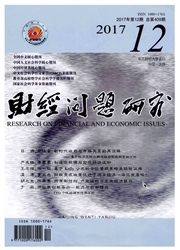

 中文摘要:
中文摘要:
本文通过对马克思经济学与新古典经济学关于沉淀成本的比较与综合,确立了广义沉淀成本的内涵,体现了动态调整的经济绩效.笔者不仅将沉淀成本与资本市场、折旧、产品市场价值以及政府经济政策等联系起来,还充分分析产生沉淀成本的原因,为动态经济绩效的政策或制度创新提供一种新的指导原则,即加强沉淀成本和风险管理,处理好自由市场与政府干预关系,对于深化我国市场经济体制改革,预防非自愿性失业和经济危机等具有重大意义.
 英文摘要:
英文摘要:
Sunk costs are conventionally defined by neoclassical economists as those costs that are not recoverable in the case of exit. Thus they pay attention to market transaction costs and asset specificity, etc. Marx, however, focuses on the production process and asset depreciation within time horizon irrespective of exit from market. In terms of value realization or cost recovery Marx' s sunk costs are defined as inability to realize in the market the full value of their product and the residual value of capital investment. Furthermore, We have found the adverse effect of sunk costs on the involuntary unemployment and economic crisis. As a result policy and institutional innovation are provided toward sunk costs management in market economy, including aggregate supply and demand policy, beyond neoclassical free market perspective in order to create a market economy system adaptable and flexible under the government intervention.
 同期刊论文项目
同期刊论文项目
 同项目期刊论文
同项目期刊论文
 期刊信息
期刊信息
